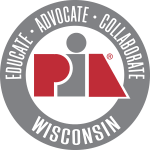Legal & Practical Considerations for Employers Regarding COVID-19 Vaccinations

 By: Judd Genda & Amy Harriman | Axley Brynelson, LLP
By: Judd Genda & Amy Harriman | Axley Brynelson, LLP
As we enter the third year of the COVID-19 pandemic, many employers and employees are trying to return to “normal,” including returning to the office. Questions often then arise from employers as far as what they can do to protect their employees, customers, business, and family as we interact face-to-face more often. This has become challenging for employers as emergency rules and judicial decisions are being made on a semi-regular basis regarding vaccination requirements.
In September of 2021, President Biden announced a directive for the Occupational Safety and Health Administration (OSHA) to issue an emergency regulation requiring businesses with at least 100 employees to mandate workers receive the COVID-19 vaccine or be tested weekly. Emergency rules are fast tracked, meaning OSHA may promulgate rules without providing notice or opportunity for public comment or hearings. Emergency rules are typically in place for about six months, at which point they are withdrawn, become permanent, or are litigated.
On November 5, 2021, OSHA published the vaccination emergency rule, which required employers to (1) develop a mandatory COVID-19 vaccination policy, by either mandating vaccines or allowing a choice between vaccination and weekly testing with face mask requirement; (2) determine vaccination status of each employee, obtain proof of vaccination status, and maintain records of vaccination status; (3) provide reasonable paid time off for employees to receive a vaccine and recover; and (4) report work-related COVID-19 fatalities to OSHA within eight hours, and hospitalizations within 24 hours. Under the emergency rule, employers were given 30-60 days to comply, with the penalty for non-compliance being about $14,000 for each single violation, or up to $135,000 for a willful violation.
Just a week later, the Fifth Circuit Federal Court of Appeals granted a motion to stay the emergency rule, which halts the implementation of the emergency administrative proceedings. For now, employers can breathe a sigh of relief. Nonetheless, OSHA is currently seeking a permanent vaccination rule, which proceedings are continuing forward. The public may submit comments to OSHA on the vaccination rule until January 19, 2022, at which time OSHA will likely develop and publish a final rule. If OSHA submits a final vaccination rule, it will likely be litigated.
While the vaccination emergency rule that is subject to the stay is being litigated, large employers do not need to comply with the proposed administrative rule, but may choose to do so nonetheless. A number of large employers such as Netflix, Disney, and CVS have. Since Wisconsin is an at-will employment state, private employers may choose to implement policies they deem necessary and prudent, including requiring employees be vaccinated. However, employers who implement such policies must also take care not to run afoul of the Americans with Disabilities Act (ADA), the Wisconsin Fair Employment Act (WFEA), and other anti-discrimination laws. Therefore, employers who mandate vaccinations must also provide a reasonable accommodation for employees who do not wish to be vaccinated because of a disability or sincerely held religious belief, practice, or observance. Reasonable accommodations can include allowing an employee to work from home, implementing a mask mandate in the workplace, requiring social distance at the workplace, or providing the employee with a separate space to work.
Given concerns over potential litigation regarding the federal vaccine mandate, many employers have instead chosen to encourage their employees to get vaccinated, rather than require it. Methods of incentivizing employees to receive the vaccine include offering vaccination clinics onsite; allowing employees to get vaccinated during work hours; and providing transportation to and from vaccine sites. From a practical perspective, many employers prefer vaccination clinics, as it eliminates the legal and administrative burden of evaluating disability and religious accommodation requests. However, employers should take care to not coerce their employees to receive a vaccine, such as providing a vaccination bonus.
Axley will continue to provide updates as the situation develops. If you have any questions about the vaccine mandate or insurance related questions, you should contact the PIAW’s Legal Hotline at (608) 200-4221.
This information is provided for the convenience of PIAW members, but cannot not be construed as legal advice. Members of PIAW may call (608) 200-4221, or email their questions to insurancehotline@axley.com, to work with an attorney and receive legal information specific to your situation.

 By: Judd Genda & Amy Harriman | Axley Brynelson, LLP
By: Judd Genda & Amy Harriman | Axley Brynelson, LLP